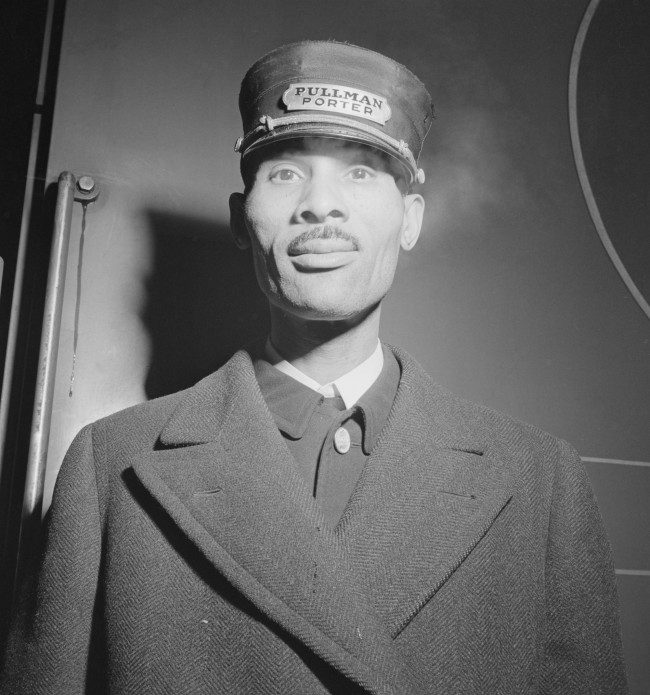Inducted 2008
The Brotherhood of Sleeping Car Porters and Redcaps, an important railway organization, was a significant force in the labour and civil rights movements in the U.S.A., paving the way for generations of employees of all ethnicities in their struggle for human rights.
The group was created in 1925 by African-Americans facing discrimination and poor working conditions. They worked long hours for little money. For example, they were required to be on duty 400 hours each month.
For many blacks, though, a porter’s job enhanced the opportunity for financial security. It often provided the stepping stone to improve the lot of entire families. Many successful blacks, (Canadian jazz great Oscar Peterson, for example) had a porter father. The porters’ early history was fraught with difficulties as they were opposed by organized labour and the Pullman Company, as well as by the white power structure, and even members of their own black communities.
But in 1935, they became the first labour organization led by African-Americans to receive a charter in the American Federation of Labor. (In 1978 they merged with the Brotherhood of Railway and Airline Clerks which is now the Transportation Communications International Union.)
In 1937, the union won its first collective agreement with the Pullman Company.
Union members, gaining confidence through solidarity, played significant roles in the U.S. Civil Rights Movement for the 1920s through to the 1979’s. As outspoken leader, A. Philip Randolph said at a 1963 rally:
“Let the nation know the meaning of our numbers. We are not a pressure group, we are not an organization. We are not a mob. We are the advance guard of a massive moral revolution that is not confined to the Negro. Nor is it confined to civil rights, for our white allies know that they are not free while we are not.”
The Brotherhood of Sleeping Car Porters in Canada was the first African-American union in this country.


